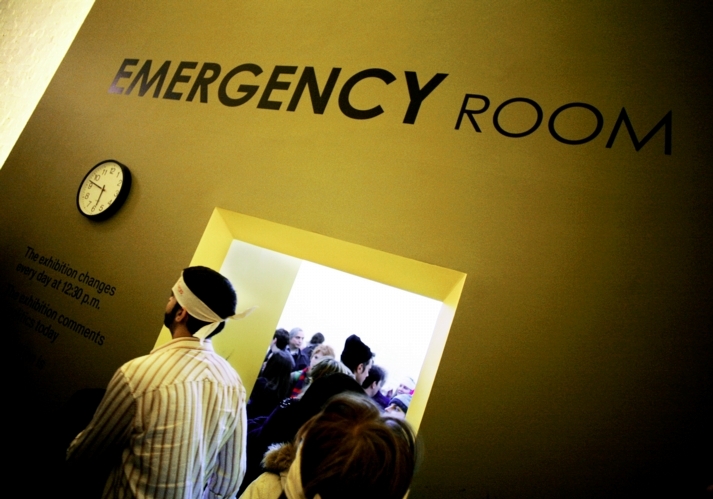A recently published article in the Journal of the American Medical Association highlights an increase in emergency department (ED) visits due to drug-related adverse or negative events. The data reveals the increase in these events between 2013-13 compared to 2005-06.

The researchers extracted their data from the National Electronic Injury Surveillance System–Cooperative Adverse Drug Event Surveillance (NEISS-CADES) project which has included between 58-63 hospitals in the United States since 2004. Adverse events ranged from mild to moderate allergic reactions to hemorrhaging, palpitations, loss of consciousness, gastrointestinal disturbances, hypoglycemia, etc., depending on the drug.
They report, “The prevalence of emergency department visits for adverse drug events in the United States was estimated to be 4 per 1000 individuals in 2013 and 2014. The most common drug classes implicated were anticoagulants, antibiotics, diabetes agents, and opioid analgesics.”
The following is a summary of their results based on stratifying information based on different age groups:
Adults over the age of 65 years
The rate of adverse drug events was highest for adults over the age of 65 years – 34.5% of ED visits in 2013-14, compared to 25.6% in 2005-06. Hospitalization rates were also highest for this group following an ED visit (43.6% visits), 7 times higher than for any other age group. 4 of the 15 most common drugs involved in ED visits “were anticoagulants (warfarin, rivaroxaban, dabigatran, and enoxaparin) and 5 were diabetes agents (insulin, metformin, glipizide, glyburide, and glimepiride).” Additionally, Beers criteria violations (which lists potentially inappropriate medications to be avoided in older adults) were involved in approximately 3.4% of cases for medications that are “potentially inappropriate” and 1.8% of cases that are “potentially inappropriate medications to always avoid”
Children and adolescents aged 19 or younger
Eight of the 15 most commonly implicated drugs for this group were antibiotics and 2 were medications typically indicated for ADHD.
Children 5 years or younger – antibiotics were the most common drug class associated with adverse events.
Children 6-19 years – Antibiotics associated with 31.8% ED visits and antispychotics were the second most common class. At least one neuropsychiatric drug (anticonvulsant, antidepressant, antipsychotic, opioid analgesic, sedative or hypnotic agent, or stimulant) was involved in 23.5% of ED visits.
Other ages: Rates of adverse events also increased for adults between the ages of 50-64 in 2013-14 compared to 2005-06 but stayed the same for all other groups.
Based on their findings the researchers suggest that targeting specific drug classes implicated for certain age groups might be beneficial. For example, physicians may reduce inappropriate antibiotic prescription for children for infections for which watchful waiting is recommended. The data also reveals a need to more closely monitor antipsychotic prescription in children. Prescribing antipsychotics to children is a practice that has increased dramatically over the last 20 years, despite recommendations against their use. While antipsychotics are not indicated as a first-line therapy for children and they are often used for off-label purposes. Prescription monitoring may be especially important in children diagnosed with a developmental disability like autism.
For older adults, with respect to anticoagulant agents, the researchers note promising results from anticoagulant management programs. Based on the rates of inappropriate medication prescription for older adults, they report that “the Beers criteria have limited utility in identifying patient populations who are at highest risk for adverse drug events” and may need to be replaced by other more specific guidelines.
Finally the researchers outline the limitations of their study that may have led to underestimation of adverse drug events: 1) limiting their data collection to ED visits 2) reduced likelihood of ED physicians to detect low severity adverse events 3) elimination of fatal drug adverse events in this analysis 4) elimination of ED visits related to abuse or self-harm in this analysis 5) not calculating per-prescription rates, which could have provided more data to identify specific trends.
They conclude, “there is ample opportunity to improve patient safety by focusing attention on the adverse drug events consistently found to be common, serious, and measurable.”
****
Shehab, N., Lovegrove, M. C., Geller, A. I., Rose, K. O., Weidle, N. J., & Budnitz, D. S. (2016). US Emergency Department Visits for Outpatient Adverse Drug Events, 2013-2014. JAMA, 316(20), 2115-2125. doi:10.1001/jama.2016.16201 (Abstract)















I’m pretty certain, based upon my experience, which is consistent with the experiences of many on this website, that ED visits related to adverse drug effects are being vastly underreported. Especially when it comes to misdiagnoses of the adverse effects and withdrawal symptoms of the antidepressants and antipsychotics, as being a “return of the illness” or resulting in diagnosis inflation.
Today’s psychiatric industry has already misdiagnosed millions of people, including a million children, as “bipolar.” When in reality these people were suffering from the adverse effects and withdrawal symptoms of the ADHD drugs and antidepressants. And this is a blatant misdiagnosis, according to the DSM-IV-TR. And today’s psychiatrists are still in denial of the fact that when one is withdrawn from the “bipolar” drugs it is common to suffer from a drug withdrawal induced super sensitivity manic psychosis, and this is almost always misdiagnosed as a “return of the illness” by ED doctors.
Do you have any research into how often such misdiagnoses are occurring? How often are the adverse and withdrawal effects of these drug classes specifically resulting in diagnostic inflation, so psychiatrists may protect the reputation of their drugs and themselves, at the expense of the reputation of their patients?
Report comment
I share your concern with profound intensity.
Are E.D Physicians trained to take a meticulous prescription drug history and able to recognise SSRI/SNRI/Antipsychotic induced AKATHISIA?
Can Psychiatrists called to E.D. departments: –
1) Recognise AKATHISIA?
2) Differentiate PSYCHOTROPIC AKATHISIA-INDUCED TOXIC PSYCHOSIS FROM FUNCTIONAL PSYCHOSIS?
The “treatment” for the latter is a catastrophe for the former.
I have witnessed this error made by consultant psychiatrist.
“THE GREATER THE IGNORANCE, THE GREATER THE DOGMA”.
Professor Sir William Osler. Regious Professor of Physic. University of Oxford.
Report comment
“return of the illness” by ED doctors.”
I will never forget it, I was given Zyprexa for insomnia and anxiety about 10 years ago and took it at night for several months but it caused this anhedionia, it was like being dead but still alive. When I quit taking it I got sicker then a Heroin addict kicking dope, Nausia, insomnia from hell and panic attacks that made me vomit, this feeling of fear to the point of psychosis… Evil ride to hell.
“return of the illness” by ED doctors.” , that’s what they said, and the nurse in the ER says the doctor can write some more Zyprexa “If we ask him nicely” … Can I please have more of the “non addictive” poison that made me so sick I am here in the ER please ? Please sit can I have some more of the poison that made me this sick ?
“Return of the illness” They say that even if you did not have the “illness” to start with !
Report comment
Absolutely they do.
Report comment
I know for FDA approval of a drug they do all kinds of studies but do official studies on the effects of drug combinations like for “adding Abilify” to all the other drugs that don’t help ?
“2 were medications typically indicated for ADHD.”
Likely Vyvanse, that drug shire cooked up when the patent on Adderal expired with that flawed “long acting” delivery system where your Dexedrine level spikes and you feel like you just smoked a fat piece of crack for a wile then the part that actually is long acting compared to Adderal the depressing anxiety ridden crash that goes on and on.
Little kids must come into ERs all the time with anxiety attacks and heart palpitations all that ‘fun’ stuff.
Report comment